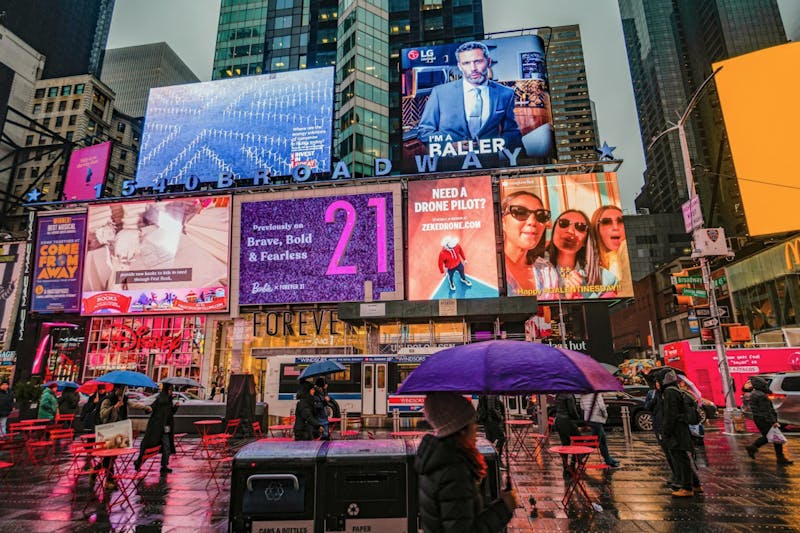A few years ago, dating sites and apps were the main tool for meeting people online. Many expected that this trend would gain momentum over time. However, in practice, the situation turned out to be different.
For clarity purposes, we can give an example of the USA, where about 30% of adult residents use dating apps. It is worth noting that until 2019, the number of users of services like Tinder or Bumble grew rapidly. The growth suddenly stopped in 2019. This figure has remained at the same level for four years now. Even the Covid-19 pandemic and mass self-isolation did not contribute to the increase in audience. Why is that happening?
Why dating apps don’t meet the demands of modern people, and its removal became a real trend
Over the past few months, an unusual trend has become increasingly popular on TikTok: users record videos of themselves deleting dating apps from their smartphones and sharing their impressions afterward. Many people claim that they feel very free and are discovering new formats of dating, without getting hung up on one thing.
One of the reasons for this trend is distrust of dating service algorithms. About a third of users believe that no algorithm can accurately select the ideal match for a person. Yes, it can take into account some user parameters and analyze their behavior, but you shouldn’t expect accurate recommendations from it. However, a more global problem is that users, in principle, have begun to lose trust in dating sites and apps. The reason is that monetization is too aggressive. Any online service must bring money to developers so that they can develop their products, introduce new functions, and improve the quality of service. However, marketing is becoming too aggressive, and the number of free features is so limited that it is almost impossible to comfortably use modern dating applications without a premium account.
It is noteworthy that users do not abandon online dating as a phenomenon. They are simply looking for new formats. For example, online video chats suddenly became extremely popular during the COVID-19 pandemic and have not lost popularity to this day.
The popularity of video chats is determined by several factors as seen below:
In online video chat, communication occurs “here and now.” You start a chat, refine the search if necessary, and within a moment, a new interlocutor appears on the screen. No swiping, matches, long correspondence “about nothing,” waiting for replies, etc.
Video chats are mostly free or at least much cheaper than classic dating apps. You can comfortably use Chatroulette without paying a cent. At the same time, you will not encounter restrictions on the number of interlocutors per day, time limits for communication, etc. Maximum freedom and minimum restrictions. It's convenient.
In video chats, as in traditional dating services, you can use the settings to search for interlocutors. However, the choice of these settings can vary significantly depending on the selected site. For example, in LuckyCrush and https://coomeet.com/luckycrush, you can filter your interlocutors by gender and language of communication (a message translator is also available in CooMeet). Chatspin, among other things, allows you to use AI masks to hide your face. It is useful for anonymity and confidentiality or to add variety to communication.
Online video chat and classic dating apps are quite different formats of online communication and dating. This is not to say that they are capable of replacing each other 100%. Nonetheless, video chats have become increasingly popular lately.
Can online video chats replace classic dating sites and apps?
In fact, it is difficult to answer this question. Some believe that the era of traditional dating sites and apps is truly a thing of the past. However, we tend to believe that traditional web dating and online video chats will continue to co-exist because both formats are needed by modern people.
At the same time, it cannot be denied that video chats have become more convenient in many respects than dating apps:
Video chats allow people to communicate in real time, and see, and hear each other. This is a more personal communication compared to text messages or audio calls.
In video chats, you can organize both group communication and private (one-on-one) video calls. This is an excellent opportunity for individuals to meet several people at the same time and for closer communication.
Many video chats have functions to search for people by interests, location, and other criteria. This is close to the capabilities of traditional dating sites.
Video calls help assess the body language, emotions, and sense of humor of the interlocutor. This is impossible to do in text communication.
It's no surprise that almost every popular dating app has added video calling functionality in the past few years. It's not the same as chatroulette. Therefore, calling them a direct alternative to video chats is somewhat impossible.
Zoomers are increasingly abandoning dating apps completely
This is true. The generation born between 2000 and 2012, who grew up in the Internet era, rarely choose traditional dating apps as a way to meet new people. According to the Pew Research Center, only 27% of Zoomers use online dating. For comparison: among millennials (born between 1981 and 1996) there are 48%; almost twice as many.
Zoomers prefer more lively communication, they do not like to waste time on long correspondence. They do not want to spend their money on premium subscriptions or face artificial restrictions. Dating app developers understand this and are trying to improve their platforms taking into account new realities. Nonetheless, they have not been able to attract a young audience in any way. It is important to understand that it is Zoomers who will soon form the basis of the entire Internet audience. If you fail to engage them in traditional web dating, the relevance of dating sites and apps will be in question.
Currently, it is very difficult to predict which path web dating will take in the foreseeable future. Video chats are extremely popular today. Classic dating services are losing their audience and social networks and instant messengers remain relatively “stable” in terms of the number of users. However, this may change too. Today, the world is being taken over by neural networks, artificial intelligence, VR, and AR technologies. All these advancements are reflected in how contemporaries meet, communicate, and spend time on the Internet. Therefore, it is possible that in just a couple of years the web dating industry will change beyond recognition.





The Daily News welcomes thoughtful discussion on all of our stories, but please keep comments civil and on-topic. Read our full guidelines here.